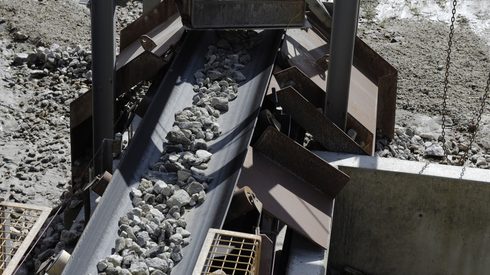The service will show its clients the indirect ‘Scope 3’ GHG emissions (as defined in the globally accepted GHG Protocol) generated by the transportation of their shipments of non-ferrous metals and minerals via container from the point of collection to the point of delivery.
Scope 3 emissions are those generated by assets not owned or controlled by the reporting organization, but that the organization uses in its value chain.
Impala Terminals makes the freight services carbon-neutral by providing funds to finance carbon projects around the world, thereby allowing clients to manage their environmental impact.
Trafigura, which owns Impala Terminals in a joint venture with IFM Investors and is its major customer, has already been trialling the service to transport nickel precipitates via sea container originating at Terrafame’s mine and refinery in Sotkamo, Finland to destination ports in China.
All shipments have been certified as CarbonNeutral deliveries since the start of the initiative in early 2021, in accordance with the CarbonNeutral Protocol – a global framework for carbon neutrality operated by Natural Capital Partners.
To offset the freight service’s emissions, a verified emissions-reduction project in was chosen in Colombia, where both Trafigura and Impala Terminals have a significant business presence. The project aims to protect one of the most biologically diverse areas in the world – the Chocó-Darién Rainforest – from deforestation.
According to Impala Terminals chief executive Nicolas Konialidis, the new service complements the company’s efforts to reduce its own operational emissions and manage its carbon footprint.
“We can now help our customers – including raw materials suppliers for the electronics, batteries and electric vehicle industries – to measure and offset greenhouse emissions along their supply chain,” he said.
“As a global logistics leader, we are committed to upholding our responsibility [to address] climate change and will continue to engage with our operating partners and customers in identifying new avenues towards a lower-carbon future,” he added.
Trafigura is one of the world’s largest charter companies, responsible for more than 4,000 voyages annually. And shipping accounts for 58% of Trafigura’s total GHG emissions.
The move comes as regulatory and consumer pressure to decarbonize increases.
The International Maritime Organization (IMO) has adopted measures to reduce emissions from the international shipping sector, with the goal of reducing carbon intensity (the emission rate of a given pollutant relative to the intensity of a specific activity) by at least 40% by 2030, with the aim of a 70% reduction by 2050.
New regulations, known as IMO2020, came into effect last year requiring the marine sector to reduce sulfur emissions by more than 80% by switching to fuels with lower levels of sulfur or by using an exhaust gas cleaning system, known as a scrubber.
Trafigura has pledged to reduce its Scope 1 (emissions generated by Trafigura) and Scope 2 (those generated by utilities supplying the company) GHG emissions by 30% against its 2020 baseline on an absolute basis within three years. It also is also aiming to set a Scope 3 GHG emissions target within the same timeframe and plans to invest in renewable power projects with a total power generation capacity of two gigawatts in the next five years.





